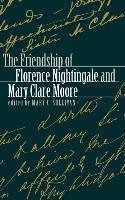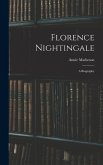Florence Nightingale is best known as a woman of action--a founder of modern nursing, a reformer in the field of public health, and a pioneer in the use of statistics. What is not generally appreciated is that Nightingale was deeply engaged in the religious and philosophical thought of her time and that the primary aim of her life was not to reform social institutions but to serve God. Although Nightingale gave primacy to her spiritual life, few of the books written about her have done so, and, until recently, few of her own writings about religion have been published. This failure to attend to Nightingale's spiritual life began to change during the 1980s, most significantly with the 1994 publication of Suggestions for Thought, her own presentation of her religious views. At the heart of The Friendship of Florence Nightingale and Mary Clare Moore are forty-seven letters written by Nightingale to Moore--her "Dearest Reverend Mother"--the founding superior of the Roman Catholic Sisters of Mercy in Bermondsey, London; ten letters written by Moore to Nightingale; and five letters written by Nightingale about Clare to other Sisters of Mercy. These letters illustrate the personal lives and spiritual struggles and aspirations of two highly influential women in Victorian England: one working to achieve military and governmental reforms, the other designing and implementing new church-related services to the poor-both bound together by their devotion to those who were neglected, by nursing and other skills, by mature Christian faith, and by their engaging affection for one another.
Bitte wählen Sie Ihr Anliegen aus.
Rechnungen
Retourenschein anfordern
Bestellstatus
Storno








